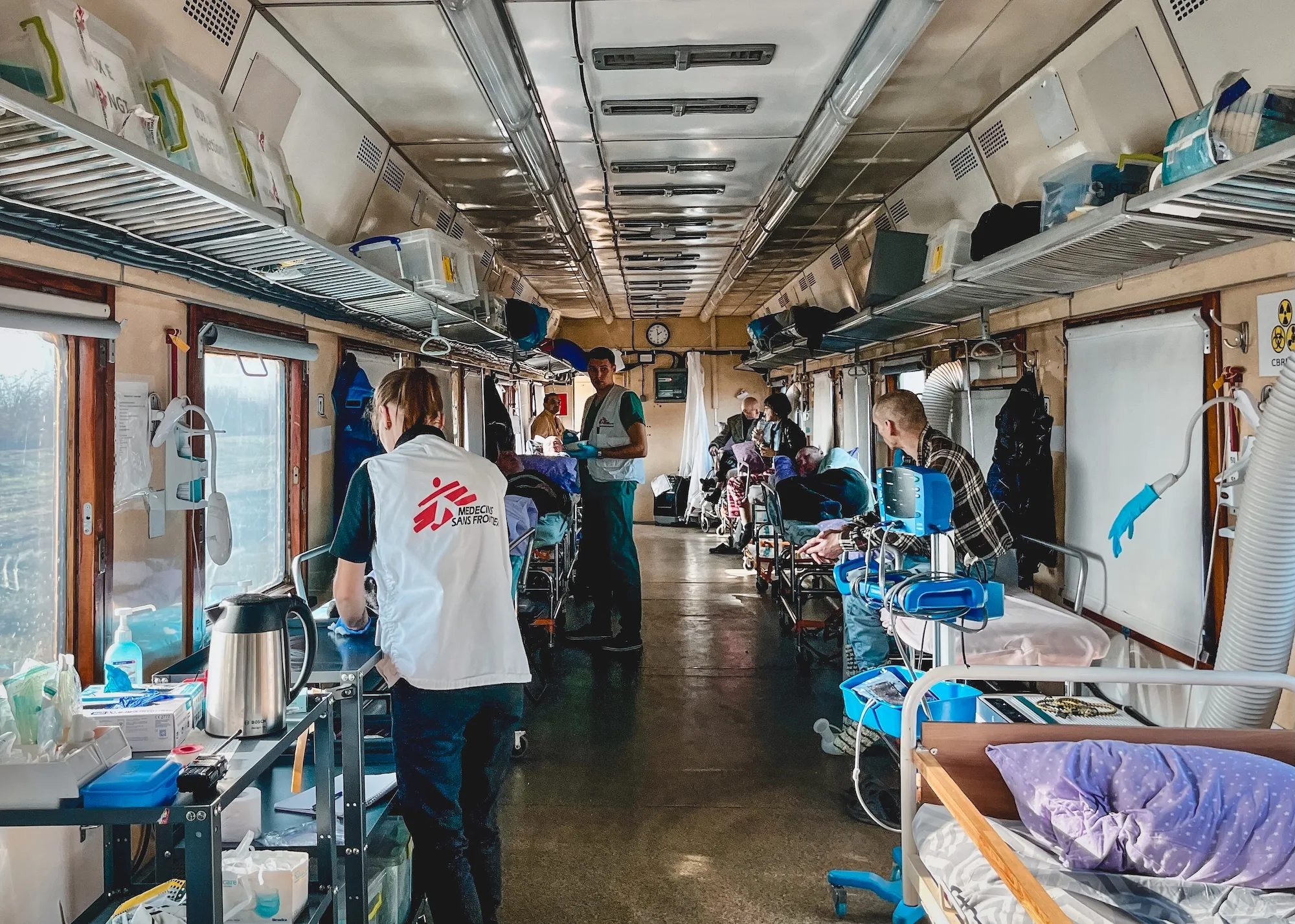24 February 2022, the day when Russia launched its full-scale invasion of Ukraine, is a day I think I will never forget. I was at home in Ireland and saw the news. Shortly afterwards, I received a call from our emergency department, and I took the first flight to Geneva for a briefing. On 25 February 2022, I arrived in Poland. One of the first interventions of Médecins Sans Frontières (MSF) was to assemble two ambulances. It took us a few days to prepare these vehicles with all the necessary supplies, and we crossed the border in the first week of March.
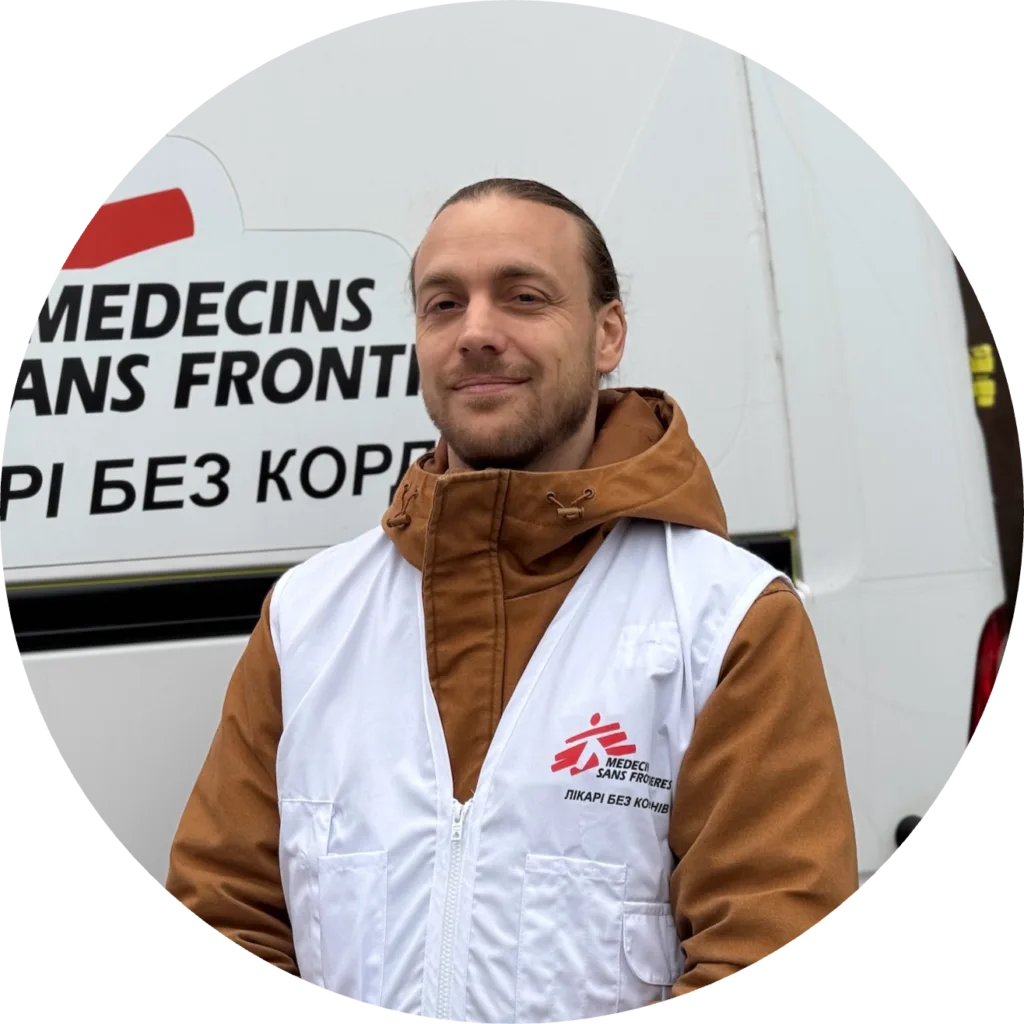
Read also: Deputy Chief Coordinator of Médecins Sans Frontières in Ukraine Andriy Slavutskyi: Our task is to support access to decent medicine
The first days of the big war
The first days and weeks were chaotic. The Russian military was advancing very quickly. We decided to split our activities to develop and implement a strategy in a short period of time. Some members of our team focused on assessing hospitals and their needs. Many cities had been evacuated, so our team was assessing how we could support this evacuation. That’s how the idea of the medical train came about. It was really impressive to see how quickly the team prepared this train and put it into operation to help and support the population during the evacuation.
Several incidents from those first months in Ukraine come to mind.
The first one was when I was part of the logistics team. One of our strategies was to introduce energy autonomy kits to hospitals that would allow them to continue operating in the event of a power outage. The front line was advancing very quickly, and we could see that Sloviansk Hospital in Donetsk Oblast would soon be in the red zone, and therefore under the threat of shelling. After a short phone conversation, we decided to go there and support the hospital with these energy kits. I remember that it was a weekend, and unfortunately, the security situation was rapidly deteriorating at that time. We were in a hurry to finish the work, while ensuring that the installation was of high quality so that the hospital could continue to operate even during power, heating or water outages. Russian warplanes were flying overhead, and artillery was firing nearby. We even heard explosions from shelling.
The second case that comes to mind concerns Sviatohirsk in the Donetsk region. This town was under Russian military occupation for several months. When Ukrainian troops recaptured it, we arrived there a few days after intense urban fighting. We saw a medical facility in disarray. Many windows were broken, bullet holes were visible on the walls, there was blood on the floor, everything was destroyed. Chaos reigned. Our entire team saw the consequences of the fighting inside the facility. Despite the difficult situation, one of our tasks was to prepare the premises so that the medical teams of Médecins Sans Frontières could start providing assistance and consultations. And we have coped with this task.
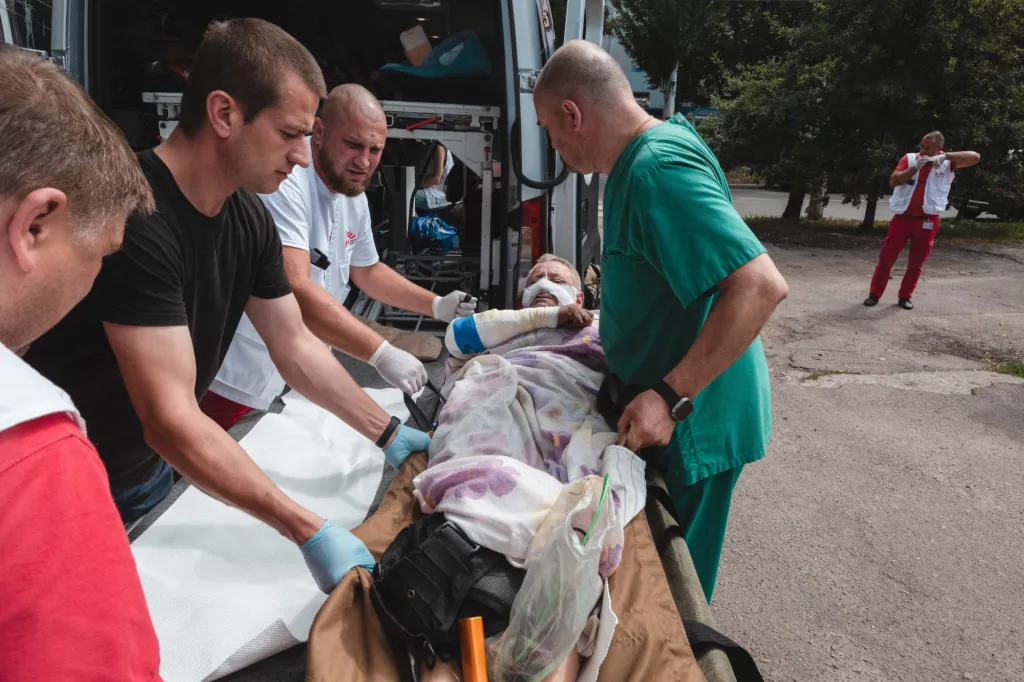
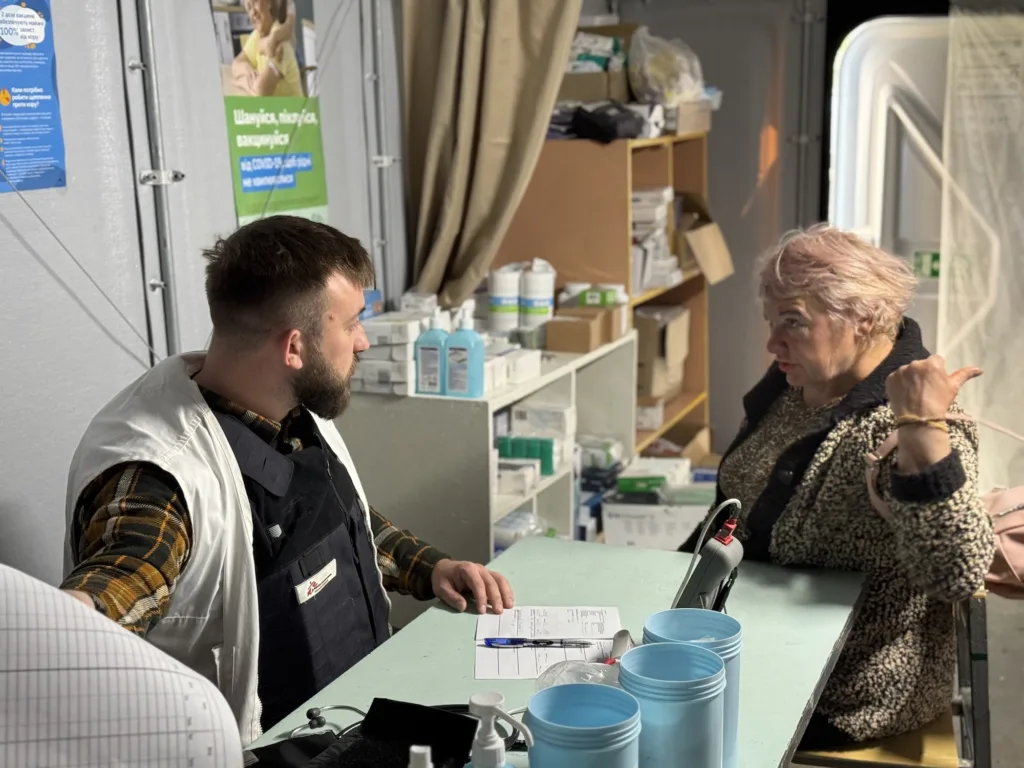
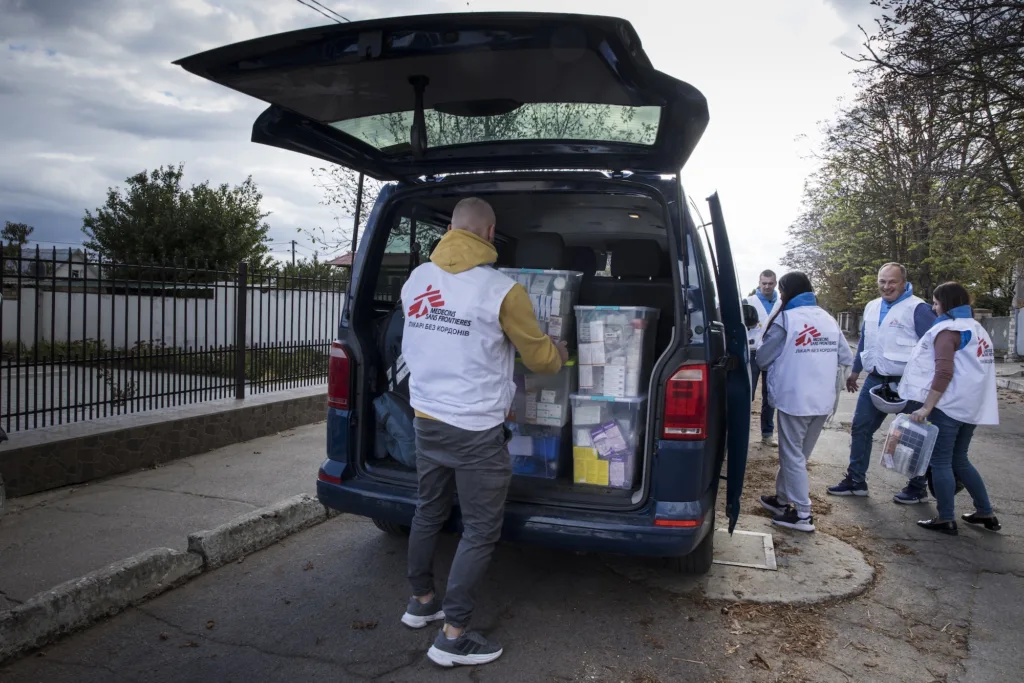
Read also: Rehabilitation in Ukraine after war trauma: the experience of Médecins Sans Frontières
What is happening now?
After three years of war, our activities, of course, have completely changed. During these three years of full-scale war, more than 2,000 healthcare facilities were damaged and more than 400 were completely destroyed. We constantly analyse the intensity of the war to understand the needs. We are now in a different phase. For example, the train project, which was initially focused on evacuation, has been transformed into an ambulance referral service. The mobile clinics of Médecins Sans Frontières and ambulances are now able to cover almost the entire frontline – about 1200 kilometres. We have 21 ambulances in our fleet. This is a large-scale and complex project that requires excellent organisation and planning. Due to the constant shelling of medical facilities, the type of support required has changed. Hospital teams and the Ministry of Health must continue to work in the face of enormous challenges.
One thing that will forever stay with me – something that continues to impress and respect me – is the dedication, motivation and efficiency of our team. Despite the fact that we had very little time to prepare, we consistently organised high quality surgeries and medical events.
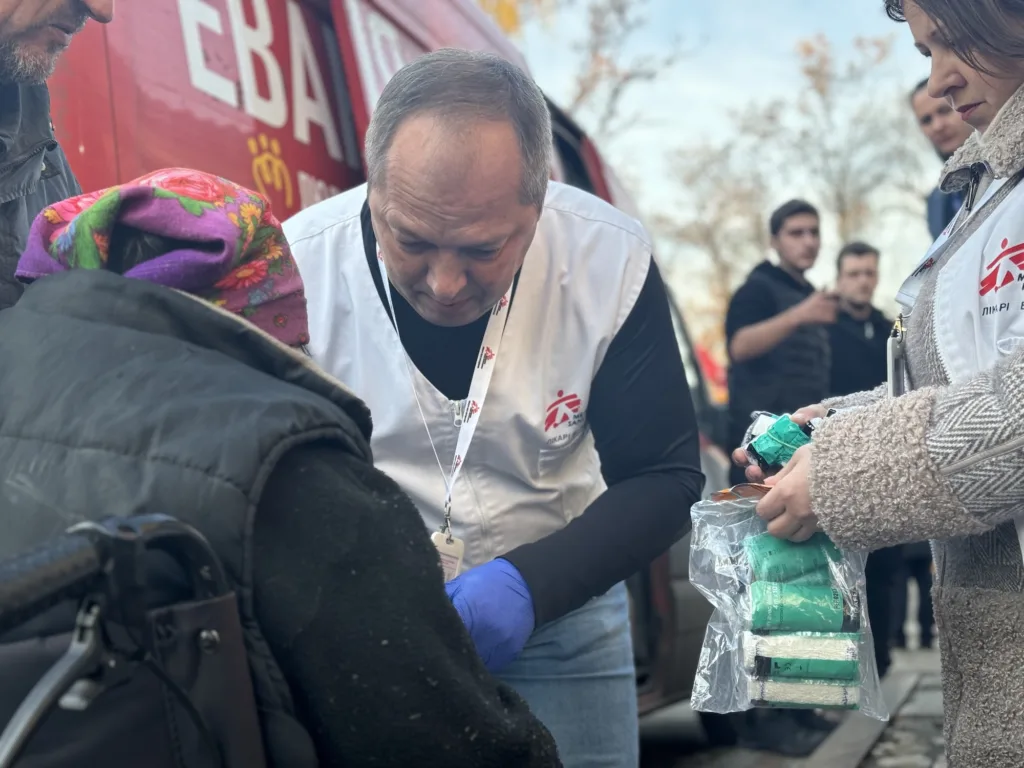
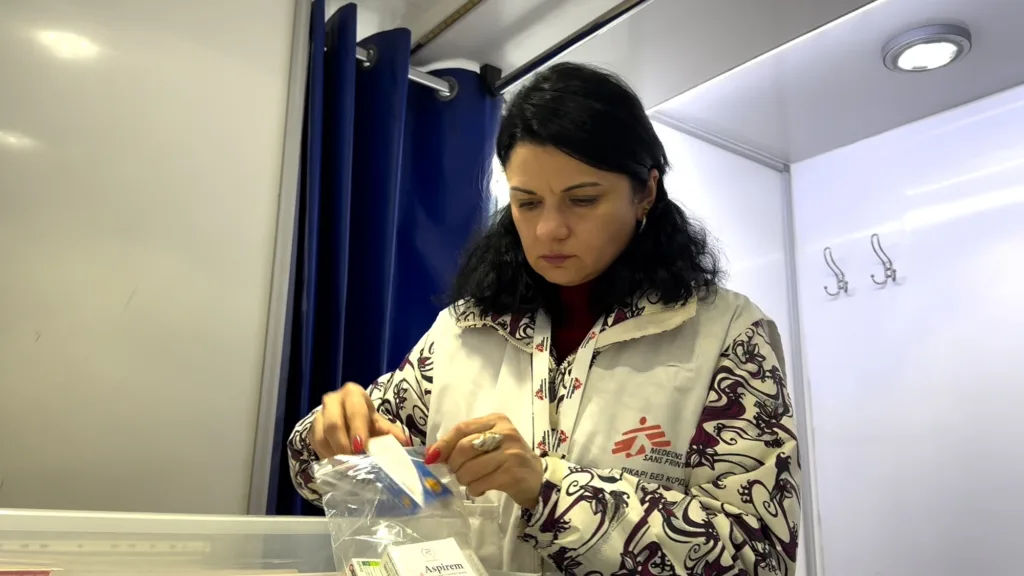
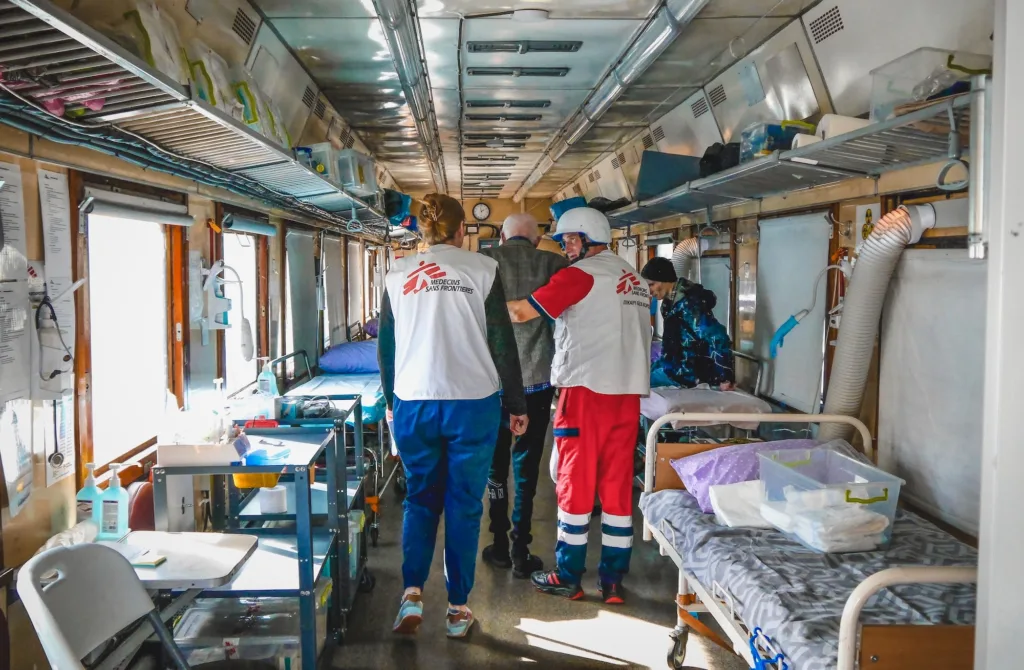
Read also: Freezing of US international humanitarian aid leads to additional suffering for the most vulnerable



